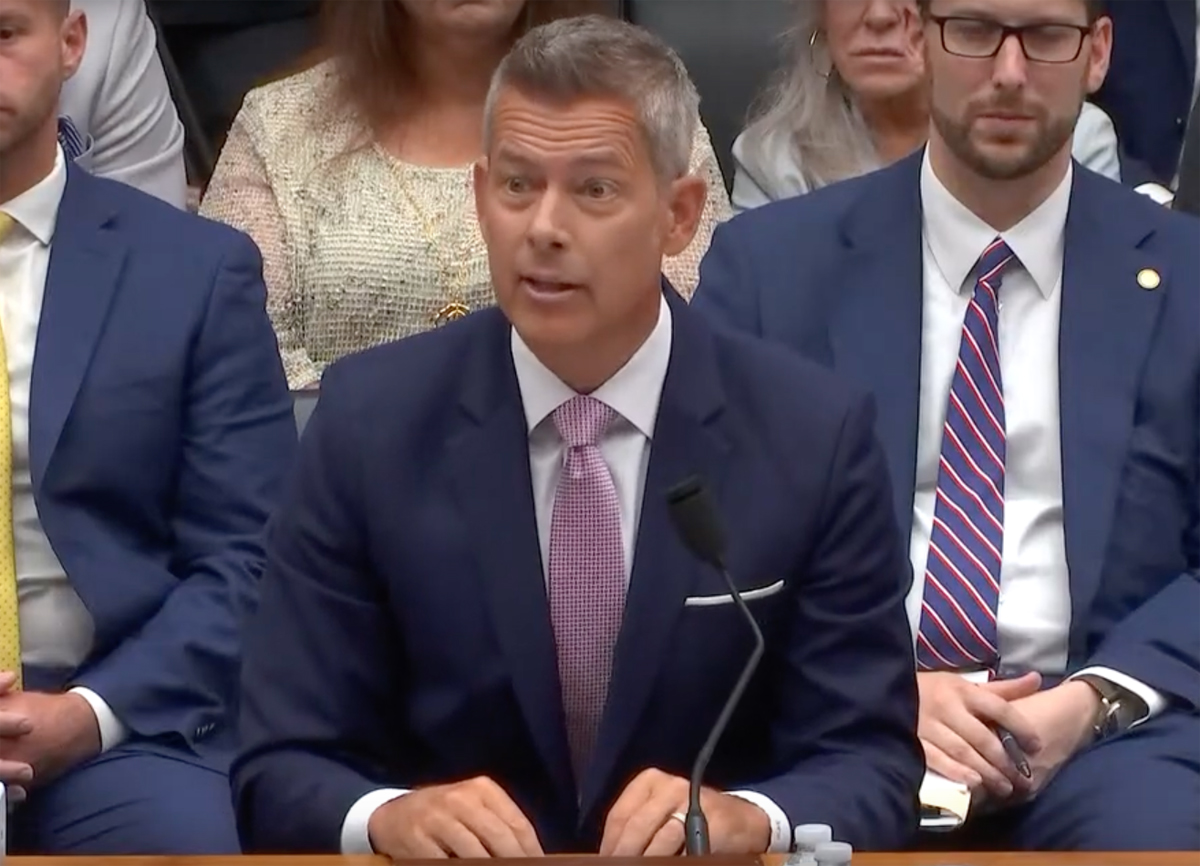
WASHINGTON — U.S. Transportation Secretary Sean Duffy faced bipartisan grilling Wednesday questioning the slow pace of his department’s release of funding for already-approved infrastructure grants, as well as the reduction of Department of Transportation personnel to approve them.
The House Transportation and Infrastructure Committee hearing, “Oversight of the Department of Transportation’s Policies and Programs and Fiscal Year 2026 Budget Request,” lasted almost four hours, not including an hour-long recess for votes in the main chamber.
Questioning by 46 legislators, mostly about the status of stalled infrastructure projects in their districts, was dominated by concerns that the DOT approval logjam was “leaving construction jobs on the table,” as committee ranking member Rick Larsen (D-Wash.) contended. Larson added, “Delaying grants authorized in statute, or conditioning transportation funding on things that have nothing to do with transportation, won’t get us to yes. The DOT is still holding up roughly 1,300 approved grants, and your FY 2026 Budget Request seeks to cancel $5.7 billion in EV charging grants.”
Duffy, previously a Republican House member from northern Wisconsin, said the backlog of projects was far greater than what previous transition teams had to process, though his department was working through it. He acknowledged, “I’m pulling the green and social justice issues out of the [funding requirements], so that is taking us a little time,” indicating all grants are being re-scrutinized.
Recurring topics were the importance of modernizing the nation’s air traffic control system. which is receiving $12.5 billion as a “down payment,” according to committee chairman Sam Graves (R-Mo.), and highway issues.
With Congress set to reauthorize surface transportation programs by next year, Rep. Rick Crawford (R-Ark.) suggested to Duffy $275 million currently appropriated to subsidize interstate highway truck parking should be boosted by canceling the EV charging program. Rep. David Rouzer (R-N.C.) wants to “fold” Infrastructure Investment and Jobs Act money into highway “formula” funding, based on a state’s vehicle miles traveled and other factors. Rail investments don’t benefit from any guaranteed annual funding.
Duffy was generally patient in listening to lawmakers’ concerns. Regarding rail issues, he reaffirmed his support of two-man crews to Rep. Eric Burleson (R-Mo.), but allowed that “technology improves cost and safety.” He did not take a position on whether the Federal Railroad Administration would approve a waiver request by Class I railroads to limit visual track inspections to two times per month, after several lawmakers brought up evidence from a previous hearing that automated track inspections did not catch 17 types of track defects. [See “House panel debates …,” Trains News Wire, June 24, 2025.]
Once again, Rep. Nate Moulton (D-Mass.) made a pitch for a level playing field between modes and to find a way “to make high speed rail work.” Duffy replied, “I’ve been tentatively supportive about Brightline West; I want to see how they do. There have been conversations about Dallas to Houston. We took out Amtrak but maybe other providers will come in there.” [see “FRA rescinds grant for Texas …,” News Wire, April 14, 2025]. “It would be great if we could have it on the Northeast Corridor but it is too [curvy]. Let’s spend money, but let’s have it deliverable.”
Duffy did reaffirm his opposition to California High Speed Rail funding, and later in the day announced that some $4 billion in previously awarded federal funding would be rescinded [see “FRA kills funding …,” News Wire, July 17, 2025].
Valerie Foushee (D-N.C.) urged expedited approval for a Consolidated Rail Infrastructure Safety Investment grant from 2021 and Federal-State Partnership grant awarded in 2023 for the Richmond-Raleigh S-Line corridor [see “Raleigh-Richmond passenger project …,” News Wire, Dec. 6, 2023]. She revealed that the state DOT “has signed a purchase agreement with the host railroad [CSX] and we need to move to the obligation phase” so construction can begin on the Raleigh-Wake Forest segment.
While generally reserved, Duffy did engage in shouting matches with two Democratic committee members:
— Criticism from Rep. Jerrold Nadler (D-N.Y.) over the Trump administration’s attempt to revoke New York City’s congestion pricing mechanism for funding public transit led Nadler and Duffy to accuse each other of lying about transit safety.
— Rep Chuy Garcia (D-Ill.) objected to the cancellation of funding to support disadvantaged enterprise and small business resource center funding, which Duffy characterized as “race preferences.”
A recording of the marathon event is available on the House Transportation and Infrastructure Committee website. It begins 26 minutes in; there is a recess at 3:02:14, the final hour begins at 3:57:00, and the session concludes at 5:03:46. The Duffy-Nadler exchange occurs one hour in; the sparing with Garcia is at 2:27.






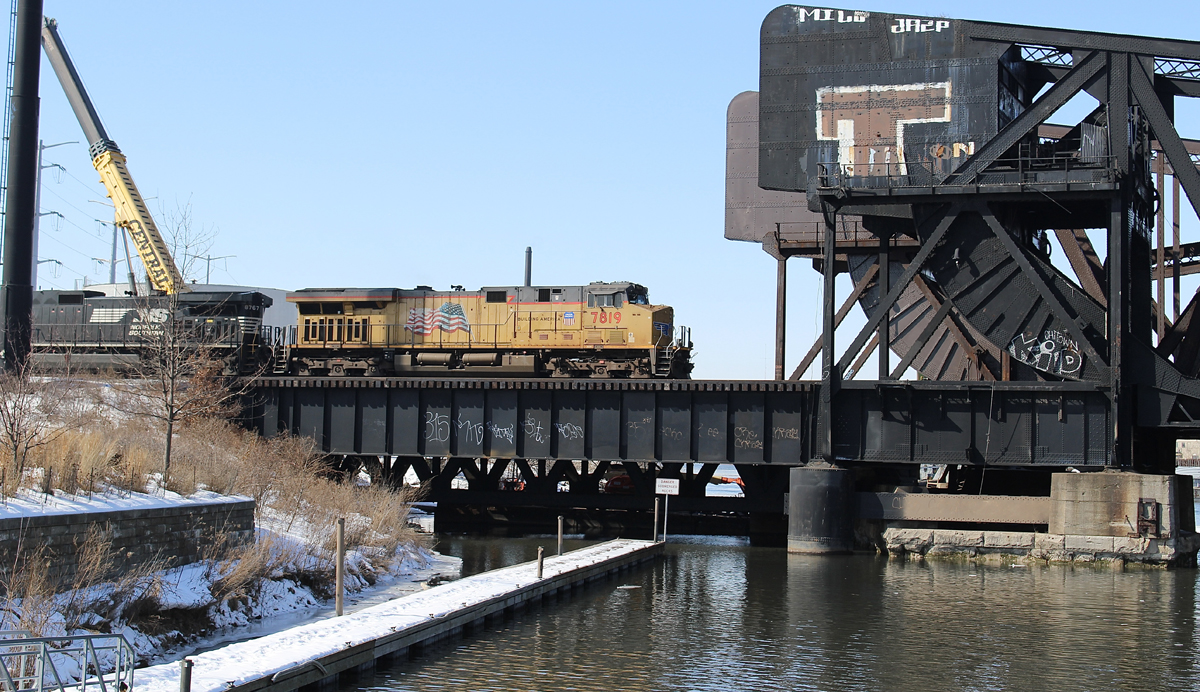
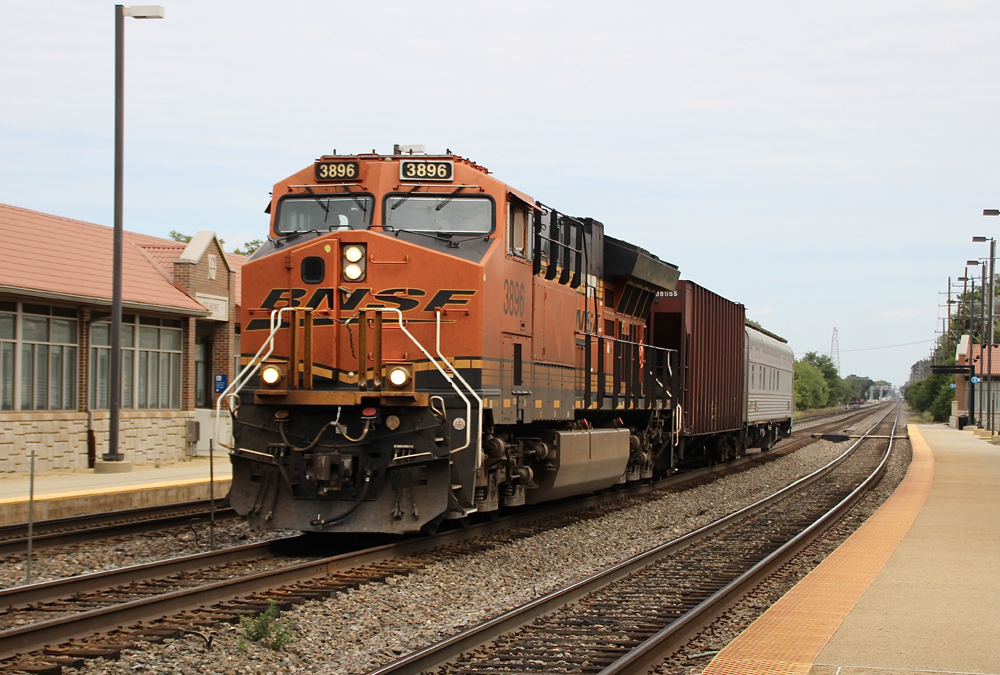
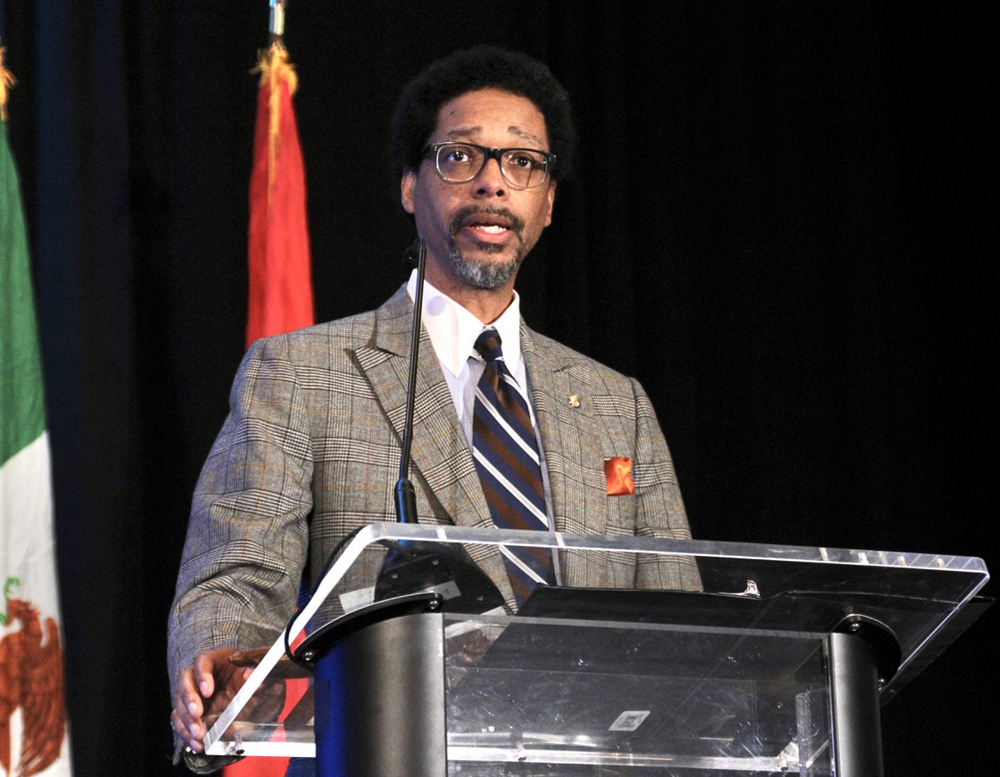
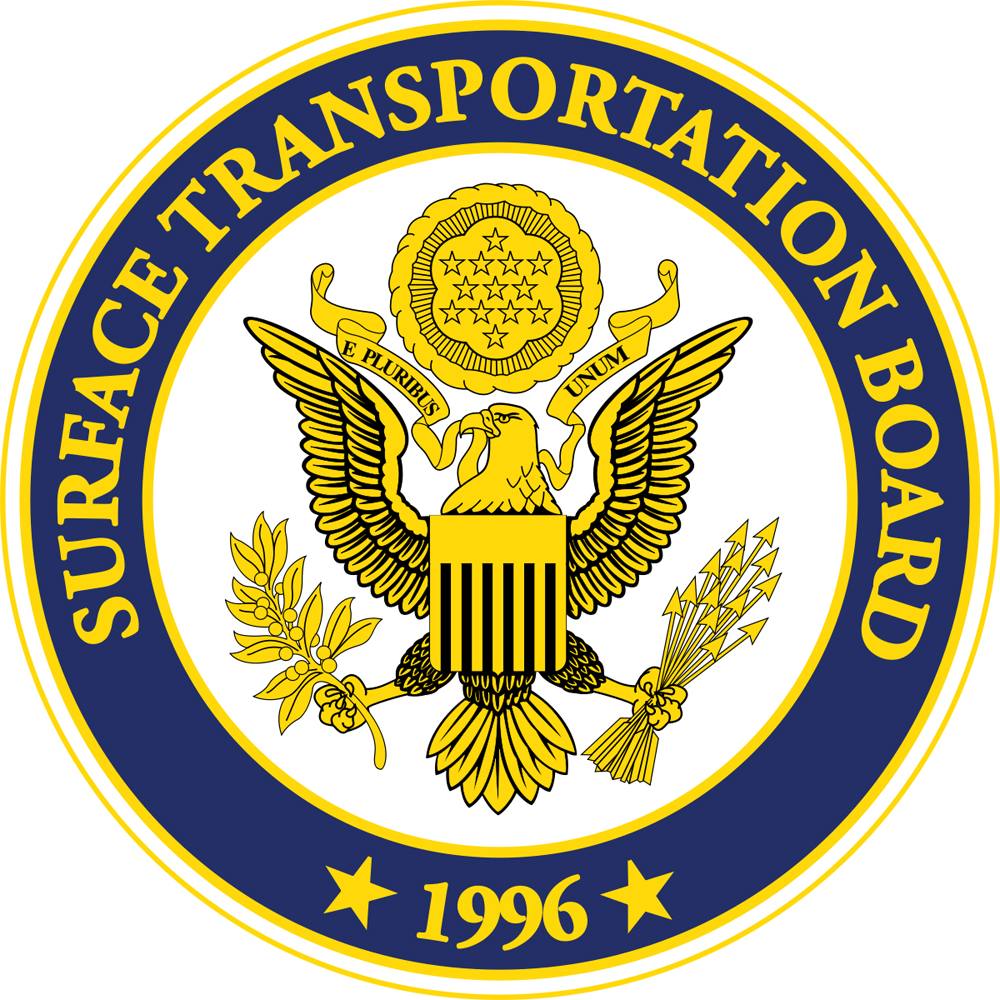




Correction: The name of the congressman from Massachusetts is Seth Moulton.
Good question. Why isn’t the trucking industry paying fees for highway truck parking?
Democrats don’t get it… We can no longer fund pet projects that have nothing to do with transportation into transportation funding bills as a way to end run the budget process to continue DEI, which the country voted against in the last November election. The ONLY way to cut the deficit is to (A) start that process no matter how difficult it may be and (B) start rational expenditures that don’t involve blowing the budget to keep consultants happy and producing little if anything…See California High Speed Rail, a boondoggle of epic proportions which won’t serve anyone for at least 15 years if then. If Californians want it, then let Californians pay for it…
I understand your concerns about government spending and the frustration over projects that seem disconnected from their original purpose. It’s true that spending should be carefully scrutinized, especially when it comes to large, long-term projects like high-speed rail. It’s important to ensure that taxpayer dollars are being spent effectively and that projects have clear, achievable goals.
That being said, it’s also crucial to recognize that infrastructure projects like high-speed rail can provide long-term benefits, even if they take time to deliver results. They create jobs, stimulate local economies, and provide solutions for future transportation needs. The challenge is balancing short-term fiscal responsibility with long-term investment in critical infrastructure.
As for the broader budget issue, I agree that we need to address the deficit and make sure that expenditures align with the priorities of the public. However, we also need to ensure that cutting costs doesn’t compromise the essential services and programs that help the country move forward. Rather than cutting vital programs outright, it might be more productive to focus on eliminating inefficiencies, reforming policies, and finding ways to make government spending more transparent and accountable.
Not one thin dime of taxpayer money should be spent on electric charging stations or to subsidize more highway truck parking.
it’s worth considering that investments in things like electric charging stations and truck parking can be part of a long-term strategy to address key infrastructure issues and support economic growth.
For example, as electric vehicles (EVs) become more popular, charging stations will play a crucial role in making that transition smoother. The infrastructure for EVs is still growing, and without this kind of support, we risk falling behind in terms of both environmental progress and competitiveness on the global stage. Similarly, improving highway truck parking is essential to ensuring that truck drivers can safely rest, which ultimately benefits the flow of goods and keeps our supply chains functioning smoothly.
It’s understandable to want fiscal responsibility, but sometimes these projects are about investing in our future. Of course, transparency, accountability, and oversight are key to ensuring that taxpayer dollars are spent wisely and that these projects deliver real value. The challenge is finding that balance.
I see your point but EV car makers or retail charging station companies should be responsible for the financing not the taxpayers. I don’t feel like as a taxpayer I should directly or indirectly subsidize the likes of elon musk. We subsidize trucking companies already enough through out taxpayer built highways. And truckers only pay a portion of the cost through fuel taxes.